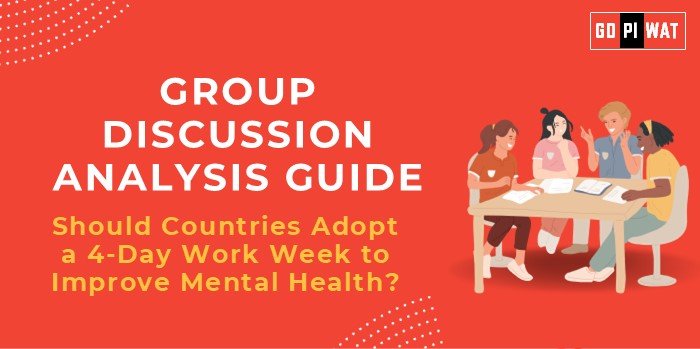🏢 Should Countries Adopt a 4-Day Work Week to Improve Mental Health?
🌍 Introduction to the 4-Day Work Week
Globally, the concept of a 4-day work week is gaining momentum as organizations prioritize employee well-being alongside productivity. Countries like Iceland and Japan have experimented with this idea, showing promising results in improving work-life balance and mental health.
Originating from the need to address modern-day work stress, the 4-day work week challenges traditional norms of a 40-hour work schedule. It aims to promote mental health by giving employees more personal time without significantly impacting productivity.
📊 Quick Facts and Key Statistics
- 🇮🇸 Iceland Pilot Program: 86% of Iceland’s workforce has adopted the 4-day model following successful trials.
- 🇯🇵 Japan (Microsoft Trial): Productivity increased by 40% with a 4-day work week in 2022.
- 🇺🇸 US Worker Preference: 63% of American workers support a 4-day week (Gallup, 2023).
- 🌐 Mental Health Stats: Overwork contributes to a 25% rise in burnout-related mental health issues globally (WHO, 2023).
🔑 Stakeholders and Their Roles
- 🛡️ Governments: Introduce supportive policies and incentivize pilot programs.
- 🏢 Employers: Adapt workflows to maintain productivity.
- 👩💻 Employees: Embrace flexible work models and demonstrate efficiency.
- 🧠 Mental Health Advocates: Advocate for reduced work stress and better work-life balance.
- 🎓 Academia/Researchers: Evaluate the economic and social impacts of reduced work hours.
🏆 Achievements and Challenges
🎉 Achievements
- 😊 Improved Employee Well-Being: Pilot programs report reduced stress and higher morale.
- 📈 Increased Productivity: Studies indicate short work weeks often lead to enhanced focus and efficiency.
- 🌟 Global Adoption Trends: Iceland, New Zealand, and Spain are pioneering reduced work hours with measurable success.
⚠️ Challenges
- 💰 Economic Constraints: Small businesses may struggle with maintaining profitability.
- 🛠️ Sector Variations: Industries like healthcare and retail may find it hard to implement shorter schedules.
- 🌍 Cultural Resistance: Traditional work ethics in some nations resist change.
🌐 Global Comparisons
- 🇮🇸 Iceland: Widely adopted with high satisfaction levels among workers and employers.
- 🇯🇵 Japan: Mixed results with productivity gains but initial resistance due to workplace norms.
🗣️ Structured Arguments for Discussion
✅ Supporting Stance
“Adopting a 4-day work week will improve employee mental health and drive productivity, as shown by Iceland and Japan’s trials.”
❌ Opposing Stance
“Reducing work days may lead to financial strain for small businesses and hinder customer service in critical sectors.”
⚖️ Balanced Perspective
“A 4-day work week offers mental health benefits but needs careful customization to suit industry-specific demands.”
🚀 Effective Discussion Approaches
- 📊 Data-Driven Start: “According to WHO, work-related stress is a leading cause of mental health disorders, and innovative models like the 4-day week aim to tackle this issue.”
- 🌍 Comparative Approach: “While countries like Iceland show success, cultural and economic challenges make global adoption complex.”
Counter-Argument Handling: Use comparative examples to validate feasibility and propose sector-specific adaptations.
💡 Strategic Analysis of Strengths and Weaknesses
- 🌟 Strengths: Enhanced employee satisfaction; environmental benefits from reduced commutes.
- ⚠️ Weaknesses: Risk of reduced output in client-facing roles; implementation costs for small businesses.
- 🌱 Opportunities: Promoting gender equality through better work-life balance; encouraging hybrid work models.
- ⛈️ Threats: Economic disruptions in underdeveloped regions; potential exploitation of unpaid overtime.
📚 Connecting with B-School Applications
- 📈 Real-World Applications: Operational strategies for optimizing reduced work hours; HR initiatives promoting mental health in workplaces.
- 🗨️ Sample Interview Questions:
- “How does the 4-day work week impact productivity across sectors?”
- “Could this model work in emerging economies with high unemployment?”
- 🔍 Insights for B-School Students: Explore case studies on successful implementation; consider industry-specific adaptability for consulting projects.


